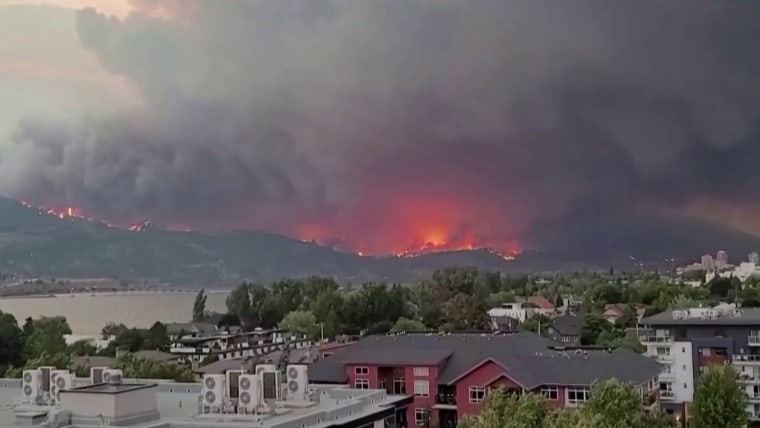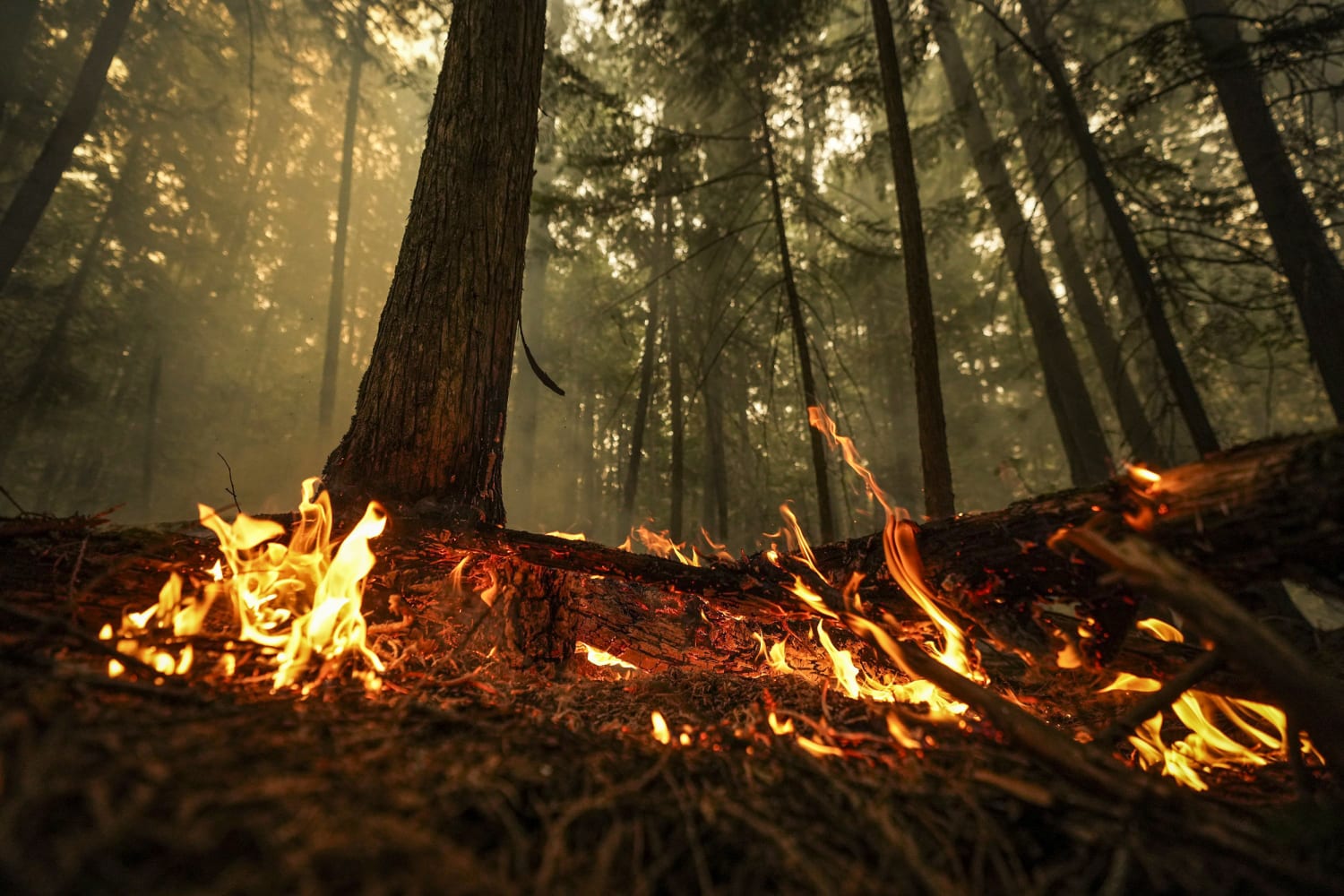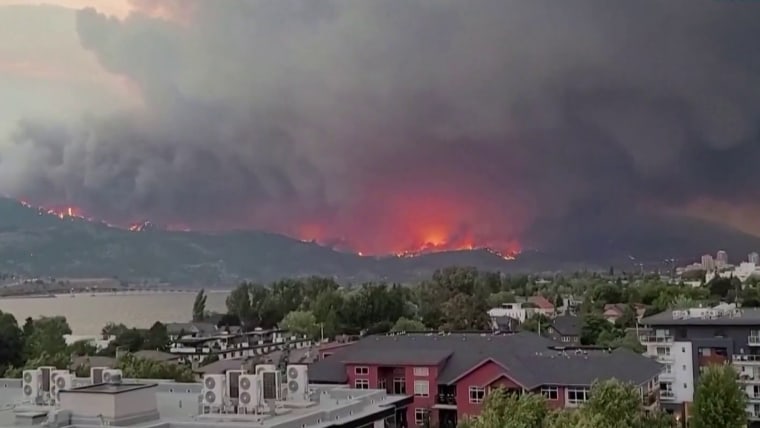The influence of climate change made the dangerous fire weather conditions that fueled Quebec’s 2023 fire season at least twice as likely, according to new research from the World Weather Attribution group.
Smoke from the wildfires burning in Quebec traveled to New York and other U.S. cities in the Midwest and along the Eastern Seaboard in spring and early summer. By early July, smoke was so thick in the United States that researchers found it already qualified as the worst season on record for smoke exposure per U.S. resident.
Scientists have been evaluating factors that might have contributed to the devastating fire season in Canada. More than twice as many acres have burned so far this year than the previous highest year on record.
The new research, released Tuesday, lays some of the blame at the hands of human-caused climate change and society’s continued use of fossil fuels. Climate change boosted the likelihood of dangerous fire weather, the researchers found.
“We can say with confidence — an event of this severity has been made at least twice as likely and at least 20% more intense by human-induced warming,” said Clair Barnes, a research associate at the Grantham Institute — Climate Change and the Environment at Imperial College London.
The research evaluated fire weather conditions using an index that accounts for temperature, wind speed, humidity and precipitation. Then, researchers used climate models to determine how likely the conditions were.
Even in today’s climate, which is more than 2 degrees Fahrenheit warmer on average than in preindustrial times, the fire season was unlikely.
Eastern Canada had a “4-5% chance of experiencing a fire weather season this severe” with temperatures today, Barnes said. More use of fossil fuels will increase temperatures and increase the risk of a fire season like the one this year.
The World Weather Attribution group is a consortium of climate researchers who study extreme weather events and attempt to understand how much human-caused warming has increased or changed the odds of those extremes. The group doesn’t have a fixed membership, but allows local and international climate scientists to partner and rapidly evaluate individual events with climate modeling and statistical analyses.
The group’s research methods are published and peer-reviewed, but this specific rapid analysis has not yet undergone a typical academic review process. Previous rapid research reports from the group have withstood academic scrutiny after their initial release and were ultimately published in major journals.
The frequency and intensity of wildfire is determined by fire suppression practices, land use and many other factors. Climate change is only one shift that is driving increasing fire behavior.
Source: | This article originally belongs to Nbcnews.com











